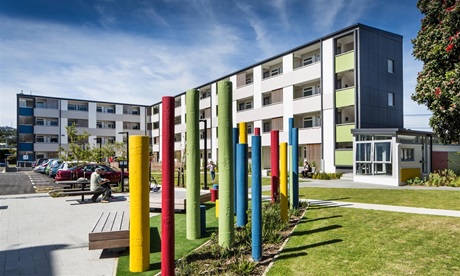Wellington City Council’s social housing upgrades may be pushed out until the eighth year of its current long-term plan.
As the 2024 plan is still being debated, social housing won’t get a look-in for funds until 2032 if Council staff recommendations are adopted.
The Council currently houses more than 3000 tenants across 1900 homes through housing provider Te Toi Mahana.
Deferred maintenance
When it meets on Thursday to vote on the long-term plan, the Council would like councillors to defer social housing upgrades.
Citing the need to cut back, staff note overall savings from the social housing upgrades would be $61.3 million. That money would be used to create a disaster fund and to contribute to the $500m the Council needs to address its under-insurance gap.
The upgrades include work which the Council must undertake as part of its Deed of Grant with the Government. They include work like seismic strengthening, insulation, ventilation, fencing and lighting, as well as kitchens, storage and laundry facility upgrades.
The Government funded $220m for this in 2007. In return the Council was to remain a social housing provider until at least 2037 – and upgrade its housing portfolio to modern standards.
Tenants deserve better
Wellington mayor Tory Whanau says it is Councillors’ responsibility – not Council staff’s – to decide where savings come from.
She wants an amendment to the staff report to remove the recommendation for deferring housing upgrades.
“This will mean tenants can get the safe, dry homes they deserve” she says.
Social housing is one of the “non-negotiables” Whanau is firm about.
A different model
In Auckland, Council staff help support Manaaki Tangata, a hospitality and care facility.
The collaboration between Auckland Council, Eke Panuku and Māori Wardens responds to the needs of those experiencing homelessness in the city centre.
Council staff say the facility means “Our most vulnerable can … have a shower and some food, store their belongings, and ultimately the hope is we can connect them to other services available to help them”.
“For some, it might be their first time on the street, they’ve done something to get themselves kicked out and they literally have nowhere to go. It’s a very scary reality having nowhere to go.”
Some mightn’t start on the streets with a drinking or drug problem but, to survive, they end up with one, says a Māori warden.
“That’s where we come in … sometimes just getting people that help, helps them to make that good decision.”
Source
Additional readingNews category: New Zealand.




